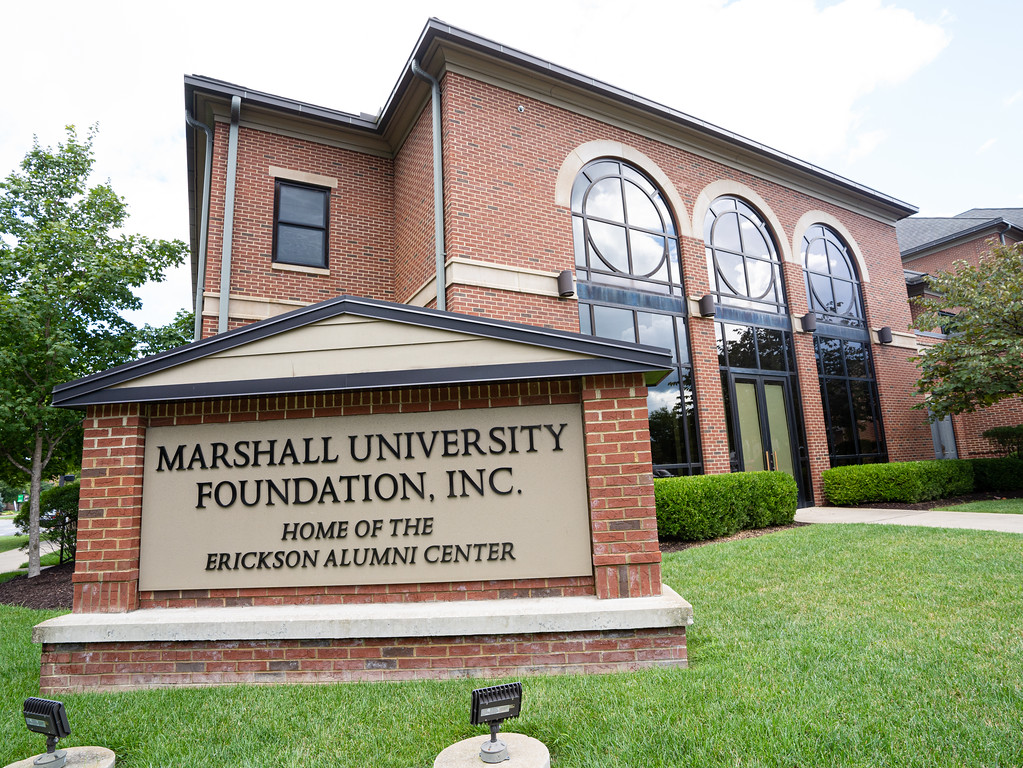
Marshall University and all its iterations have always relied upon the support of the community to survive.
Local residents built the first Marshall structure on the small hillside where Old Main now resides. The property was purchased by John Laidley, a prominent local lawyer, from James Holderby – both familiar names on campus still today.
When then Marshall Academy fell on financial troubles before the Civil War and Laidley’s son put the property up for auction, a Guyandotte woman by the name of Salina Cordelia Hite Mason purchased it. A teacher herself, she had no issues satisfying the original deed by using the property for educational purposes. According to the university archives, she and her two sisters, Katie Hite and Mrs. Addie C. Holderby, all of whom were experienced teachers, taught classes while they lived there, providing education to the community during the war. After her husband died in 1863, Mason invested money from her husband’s estate in the college, in order that she might preserve it from reverting to the original owner. The West Virginia Legislature established the State Normal School at Marshall College in 1867 and Mason sold the property, though she continued to teach at the prep school.
The then-college weathered another war that dipped enrollment, but as soon as World War II was over, the college saw record enrollment. By 1946, the college realized the faculty, physical plant and curriculum were all inadequate for the post-war influx of students.
Again, Marshall supporters stepped up to the plate.
On Jan. 3, 1947, five Marshall alumni and supporters signed the articles of incorporation that established the Marshall University Foundation Inc. The mission of the Foundation is to maximize continuous financial support for Marshall and its students by soliciting, receiving, investing and administering private gift support.
Frank E. Hanshaw Sr. was among the founders, and he served as the first Foundation president until 1954, though he remained active with the Foundation for 40 years and was serving as the chair of the Gifts, Memorials and Income Committee of the board of directors at the time of his death in 1987.
The Foundation staff remained small through the 2000s but began to outgrow its third-floor space in Old Main. The board of directors began discussing finding the Foundation its own building.
“We wanted to be more visible and accessible,” said Pam Nibert, vice president of administration and executive assistant to the chief executive officer, who has been with the Foundation for 26 years.
At the same time, the Marshall University Alumni Association, which was not incorporated at the time, was also looking to have its own space. In fact, the association had already raised a significant amount in donations. So, the Foundation and Alumni Association joined hands. With principal coordination by foundation board member, Tim Haymaker, work began to build a brand-new building along Fifth Avenue that would house both entities.
Haymaker, a 1969 Marshall graduate and real estate developer based in Lexington, Kentucky, used his expertise to lead the development of the new location. The 2nd floor mezzanine is named for him, in honor of his “outstanding generosity, remarkable innovation and exceptional leadership.” His dedication advanced this project from conception to reality.
Despite the 2008 market crash leading to rising construction costs, the Foundation board of directors pushed forward with construction thanks to donor support.
Foundation Hall, home of the Erickson Alumni Center, opened in 2010. It would later be renamed the Brad D. Smith Foundation Hall in 2015 in honor of the philanthropist and CEO for his transformational gift to the university.
Now, 75 years since the articles of incorporation were signed, the Foundation supports a staff of about 35 full-time employees and is continuing to grow thanks in part to the success of the Marshall Rises comprehensive campaign. The staff at the Marshall Foundation will continue to work with the Marshall community to ensure Marshall continues to thrive.
